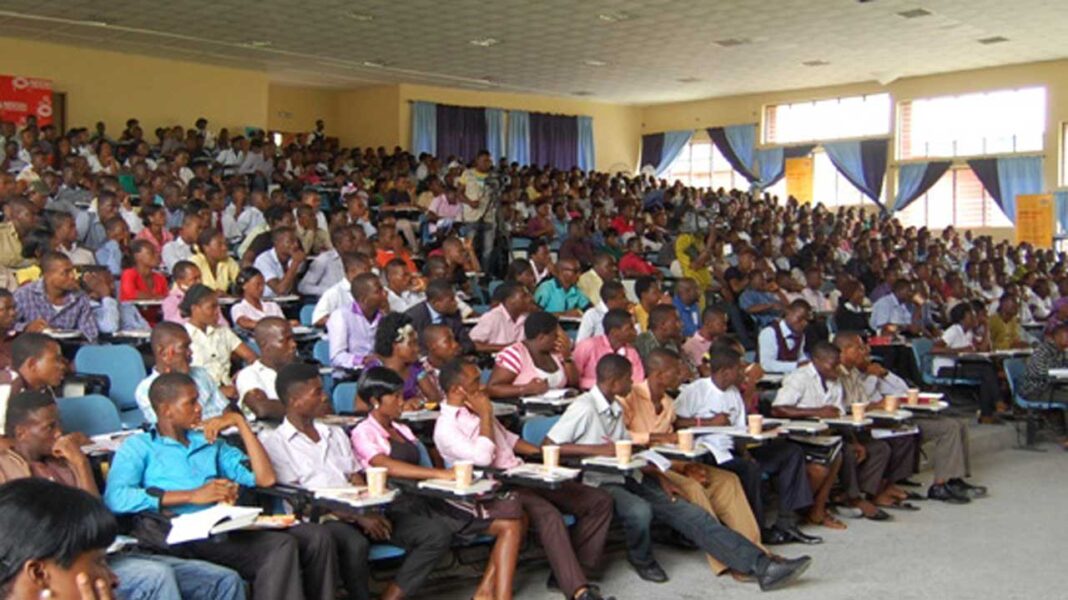One of the swift administrative changes made by the President Tinubu led administration immediately after he assumed office aside from fuel subsidy removal, was penning his signature on Student Loan Bill into law which enables Nigeria’s varsity students to access loans at interest-free rates, and among others, stringent procedures which could not have strengthened its essence. However, having carefully considered the implications President Tinubu wrote to the Nigeria’s Senate to reflect the true intent of the Student Loan Bill, it was passed on the consideration of Senate committee on tertiary institutions and the Tertiary Education Trust Fund ( TETFund).
NELFUND shall be a body corporate
The Bill made provision for establishment of Nigerian Education Loan Fund (NELFUND) as a body corporate to receive, manage and invest funds to provide loans to Nigeria’s varsity students, vocational training and skill acquisition and related matters. This will immediately replace the existing Act- Student Loans ( Access to Higher Education) Act 2023 when signed into law by the president with the law titled Enact the Student Loans (Access to Higher Education) Bill, 2024. NELFUND as a body corporate can sue and be sued in its name and has the power to acquire, hold, and dispose of movable and immovable property, for the purpose of its functions. NELFUND is charged with making loans available for qualified student for tuition, fees, charges and upkeep during their studies in approved institutions. A sharp contrast to the 2023 Act which placed the administration of the Fund in a Special Committee, which will be chaired by the Governor of the Central Bank of Nigeria.
Eligibility status of applicants
Eyebrows were raised when the 2023 Act on its eligibility status considered a stringent measure as to the application of the student loan, the Bill removed criteria of annual income of the applicant or family not less than N500,000. The 2023 Act also required that applicants provide two guarantors who shall be a civil servant of level 12 and above, a lawyer with ten years post-call experience, a judicial officer, or a justice of the peace. The proposed Bill has abolished such requirements as to eligibility. Under the 2023 Act, students can only apply for loans to pay tuition fees, despite other institutional charges students pay or for their upkeep. But in the new Bill, applicants to the Fund may apply for loans to cover tuition and other fees payable to the school and maintenance allowance payable to the student. Under 2023 Act children whose parents have defaulted on any loans previously were barred from applying for student loans, but the proposed 2024 Bill has removed that clause.
Related topics:
Duration for loan recovery
The proposed Bill provides that loan recovery efforts shall not take effect until two years after completion of National Youth Service programme. In cases where the applicant is not employed in any capacity and it is not receiving income, such beneficiary shall in providing affidavit to that effect request for extension of time. In its rigid provisions 2023 Act criminalises failure to repay loans obtained from the Fund without consideration for circumstances, including unemployment, death, or disability. However, the proposed legislation provides that only a person who provides a false statement to the Fund is guilty of a felony and is liable to imprisonment for three years.
The aim and objectives of the Bill
The Bill seeks to enhance the implementation of the Higher Education Student Loan Scheme by addressing challenges related to the management structure of the Nigerian Education Loan Fund, applicant eligibility requirements, loan purpose, funding sources and disbursement and repayment procedures. It goes without saying that the greatest benefactors of this Loan Bill will be students of public universities, it could provide a turning point for them, if the provisions of the Bill are implemented to the letter and due diligence and honesty provided for the disbursing the Loan without compromise of the any kind. This Bill was sponsored by Bamidele Opeyemi, the Senate leader, Senator representing Lagos East.
A relieve for vast majority of Nigerian students
The atmosphere is composed on the wake of the Bill, as opposed to backlash received by 2023 Act. What will going to determine the effectiveness of the Bill, is its implementation. Nigeria has had the opportunity to have structured laws, but where the problems lie is its implementation and all manner of compromise which pose threat to democratic institutions. The Bill in general is a welcome development, its effectiveness will define its essentiality and impacts on Nigerian students.

















